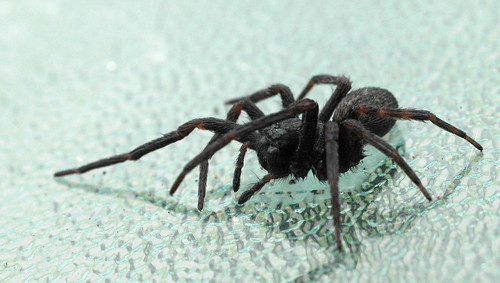Welcome to Word Buzz Wednesday, in which we round up our favorite buzzworthy words of the week. The latest: arachnid royal handwriting; a short-term business model; and the internet of NSFW things.
black spider memos
“The move follows a 10-year battle by the Guardian to expose the heir to the throne’s so-called ‘black spider memos’ to public scrutiny.”
Robert Booth, “Prince Charles’s black spider memos to be published on Wednesday,” The Guardian, May 12, 2015
The black spider memos — named for Prince Charles’s “black inky scrawl”– are 27 letters that were sent between the prince and ministers in UK government departments in 2004 and 2005. They were also “the subject of a Freedom of Information Act request by the Guardian journalist Rob Evans.”
The government has been trying to prevent the release of the letters due to their demonstration of “Charles’s ‘particularly frank’ interventions on public policy.”
drought shaming
“#droughtshaming is blowing up. And it’s shoving another of California’s problems—vast income inequality—into an uncomfortable spotlight.”
Maddie Stone, “California’s Wealthiest Are Being Drought Shamed on Social Media,” Gizmodo, May 17, 2015
Drought shaming is publicly shaming someone for using more than their fair share of water during California’s current drought and mandatory water restrictions.
Other types of public shaming include fat-shaming, slut-shaming, and drunk shaming.
dysfunctional expertise
“Dysfunctional expertise describes the ways a burglar thinks differently than a normal person.”
Bourree Lam, “The Mind of a Burglar,” The Atlantic, April 29, 2015
Dysfunctional expertise is like regular expertise but in something illegal or nefarious.
With practice, says The Atlantic, burglars refine their skill sets, such as learning “to automatically pick up cues in the environment that signify a successful burglary without even being aware of it.”
Hollywood model
“It’s probably not coincidental that the Hollywood model is ascendant at a time when telling stories, broadly speaking, is at the heart of American business.”
Adam Davidson, “What Hollywood Can Teach Us About the Future of Work,” The New York Times Magazine, May 5, 2015
The Hollywood model is a business model in which, according to The NY Times Magazine, “a project is identified; a team is assembled,” the team “works together for precisely as long as is needed to complete the task,” and “then the team disbands.”
In the more traditional corporate model, “capital is spent up front to build a business, which then hires workers for long-term, open-ended jobs that can last for years.” Then there’s the even shorter-term gig economy exemplified by Uber, in which “extremely short-term tasks” are managed by one person, “typically in less than a day.”
teledildonics
“Once fringe products stuffed into dark corners of adult stores, teledildonics are becoming increasingly sophisticated, with social elements connecting couples and strangers alike.”
Molly McHugh, “Sex and love in the age of robots,” The Week, May 11, 2015
The internet of things has reached a whole new level. Teledildonics are remote-controlled, Wi-Fi-enabled sex toys that are “popular with long-distance couples,” says The Week.
The word teledildonic is made up of a few different parts: tele-, meaning “over a long distance”; dildo, referring to the sex toy; and the suffix –ic, which means “of or relating to,” but perhaps also echoes the –ic of electronic.
The word dildo, in case you were wondering, is over 400 years old, and might come from the Italian deletto, “delight.”
[Photo via Flickr: “Spider,” CC BY 2.0 by Peter Harrison]
